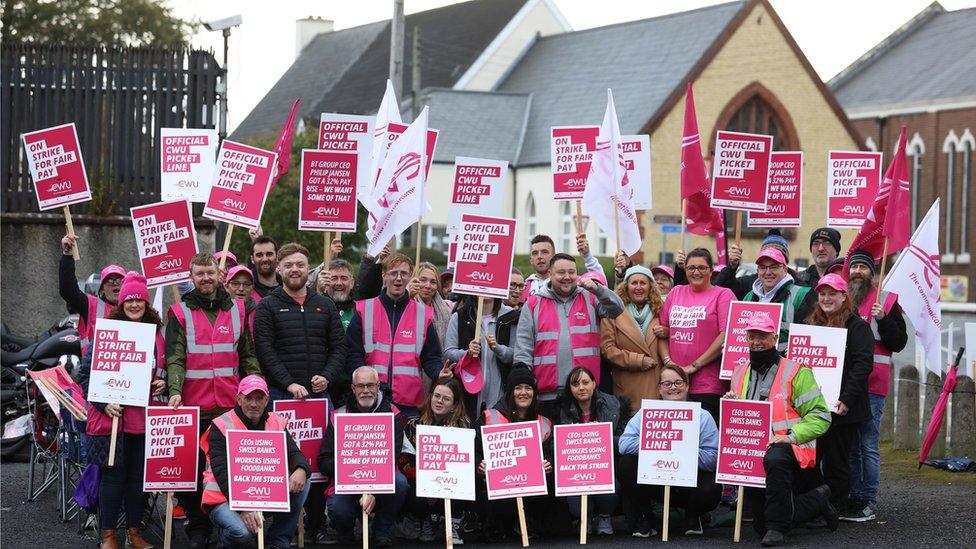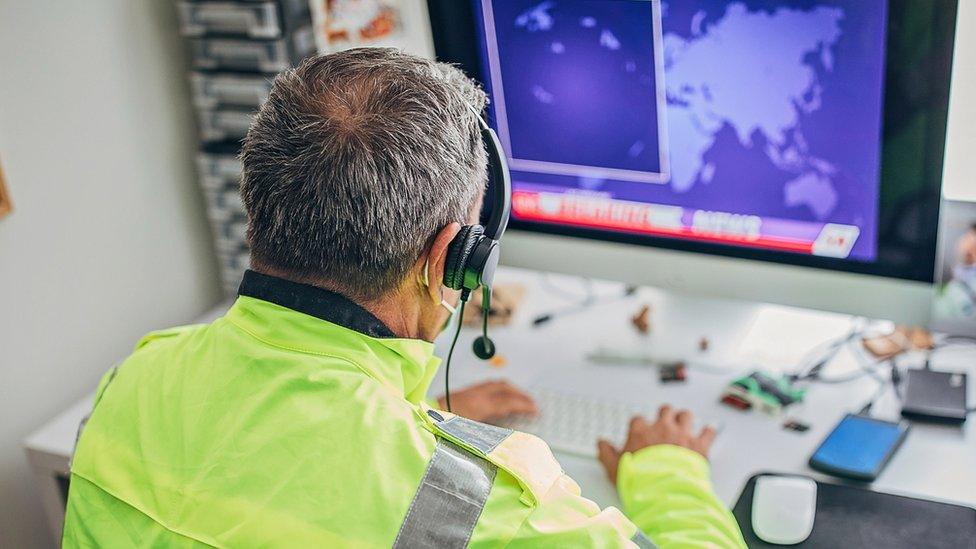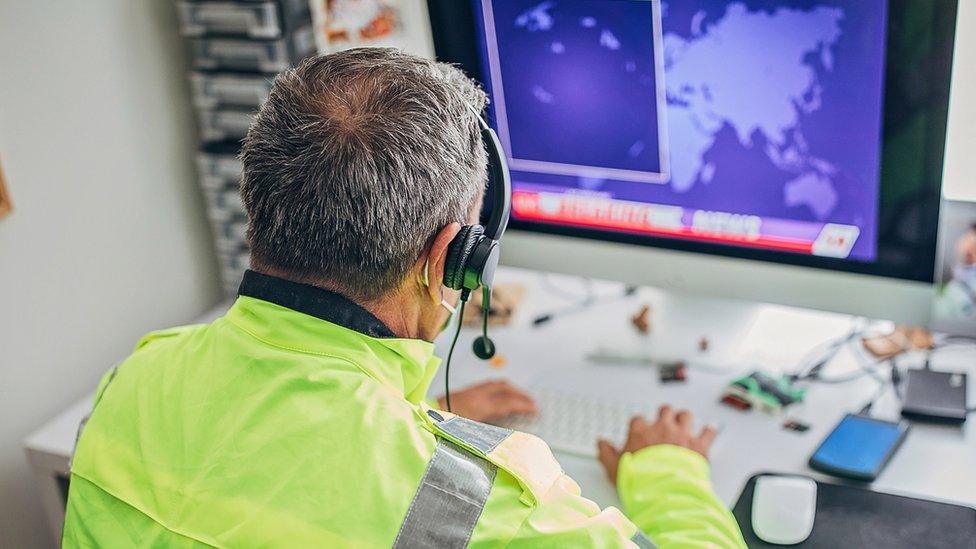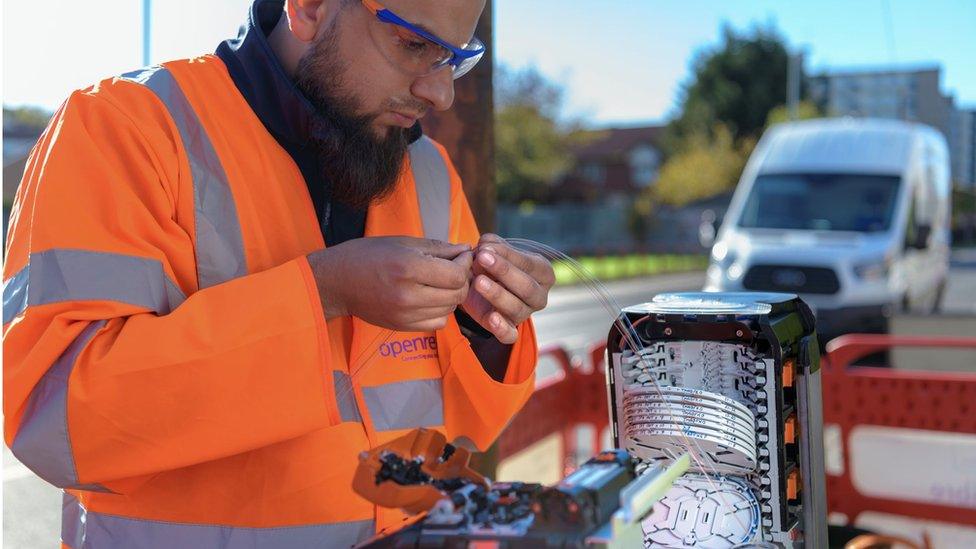BT Group aims to protect 999 services during strike
- Published
- comments

The BT Group has said it will do "whatever it takes to protect 999 services" during a strike by the Communication Workers Union (CWU) in Northern Ireland.
Staff who answer emergency calls are among hundreds of BT Group staff in NI who began strike action on Thursday.
CWU said most of its members at BT's 999 call centre would strike.
About 120 call handlers are the first point of contact for the public in an emergency situation.
Those workers, based in County Armagh, then relay calls to the appropriate service such as the police, the fire service, or the ambulance service.
"We have about 1,600 people in BT/Openreach in Northern Ireland and we expect the majority of them to be on strike," CWU NI Regional Secretary Erin Massey said.
"We were on strike before, but as part of that agreement the 999 emergency handlers were not on strike.
"We have to show the company we are serious.
"It is not an easy decision for us to make, for the emergency call handlers to go on strike, but the company has given us no other choice.
"They are ignoring our demands to come to the table."

Call centre staff are calling for a higher pay rise
Ms Massey said workers "want a decent pay rise, not the pay rise of 2% imposed by the company" which she said represented "a pay cut when measured against the cost of living increases".
"We have 999 operators in the UK relying on foodbanks - it is shameful," she added.
Some 40,000 BT Group workers in the UK began strike action on Thursday and will also strike on 10, 20 and 24 October in a dispute over pay, according to the CWU.
In previous strikes, the union agreed with BT that 999 call handlers would not strike, to avoid putting pressure on emergency services.
The CWU said more than 500 operators in 999 call centres across the UK were joining the strike.
BT Group said it gave its staff a £1,500 a year pay rise in April.
It said this represented an increase of about 5% on average which rose to 8% for the lowest paid and was the highest pay rise in more than 20 years.
But the CWU said factoring in that the inflation rate had reached a 40-year record high of 10.1% in July - the pay offer represented a "real terms pay cut."
In a statement, the BT Group acknowledged its "colleagues are dealing with the impacts of high inflation".
'Work to minimise disruption'
It said that while it respected the right of colleagues to take industrial action, it was "profoundly disappointed that the CWU is prepared to take this reckless course of action by including 999 services in strikes".
"We will do whatever it takes to protect 999 services - redeploying our people to the most important priority is a normal part of BT Group operations," it added.
"We made the best pay award we could in April and we have held discussions with the CWU to find a way forward from here.
"In the meantime, we will continue to work to minimise any disruption and keep our customers and the country connected".
Speaking to BBC News NI's Good Morning Ulster programme, Ms Massey rejected BT's claim that the union's actions were reckless, and instead blamed the company
"They're the ones not coming to the table," she said.
The Department of Health has been contacted with regard to the strike.
Related topics
- Published21 September 2022

- Published30 August 2022
